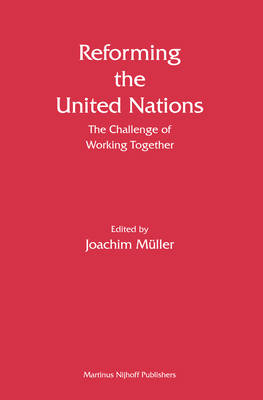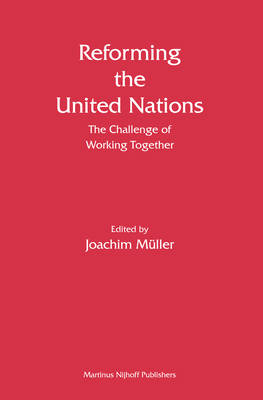
- Afhalen na 1 uur in een winkel met voorraad
- Gratis thuislevering in België vanaf € 30
- Ruim aanbod met 7 miljoen producten
- Afhalen na 1 uur in een winkel met voorraad
- Gratis thuislevering in België vanaf € 30
- Ruim aanbod met 7 miljoen producten
Zoeken
Omschrijving
What are the limits of UN system reform? Recent efforts in governance and institutional reform demonstrate that the hurdles are tremendous. The never-ending Security Council reform resulted in disappointment for hopeful governments. The system-wide coherence initiatives covering environment, gender, and 'Delivering as One' at country level provide a sobering picture. Inter-agency coordination on climate change, food security, and the global financial crisis did not result in joint programmes. Instead, new entities have diminished the role of the UN which operates on the OECD principles of 'aid effectiveness.' Consolidation and merging of UN mandates and structures appear to be a precondition for coherent and efficient action: A conclusion which dominates this edition of the publication series on 'Reforming the United Nations'.
Specificaties
Betrokkenen
- Auteur(s):
- Uitgeverij:
Inhoud
- Aantal bladzijden:
- 408
- Taal:
- Engels
- Reeks:
- Reeksnummer:
- nr. 6
Eigenschappen
- Productcode (EAN):
- 9789004178434
- Verschijningsdatum:
- 6/04/2010
- Uitvoering:
- Hardcover
- Formaat:
- Genaaid
- Afmetingen:
- 173 mm x 246 mm
- Gewicht:
- 793 g

Alleen bij Standaard Boekhandel
+ 610 punten op je klantenkaart van Standaard Boekhandel
Beoordelingen
We publiceren alleen reviews die voldoen aan de voorwaarden voor reviews. Bekijk onze voorwaarden voor reviews.








